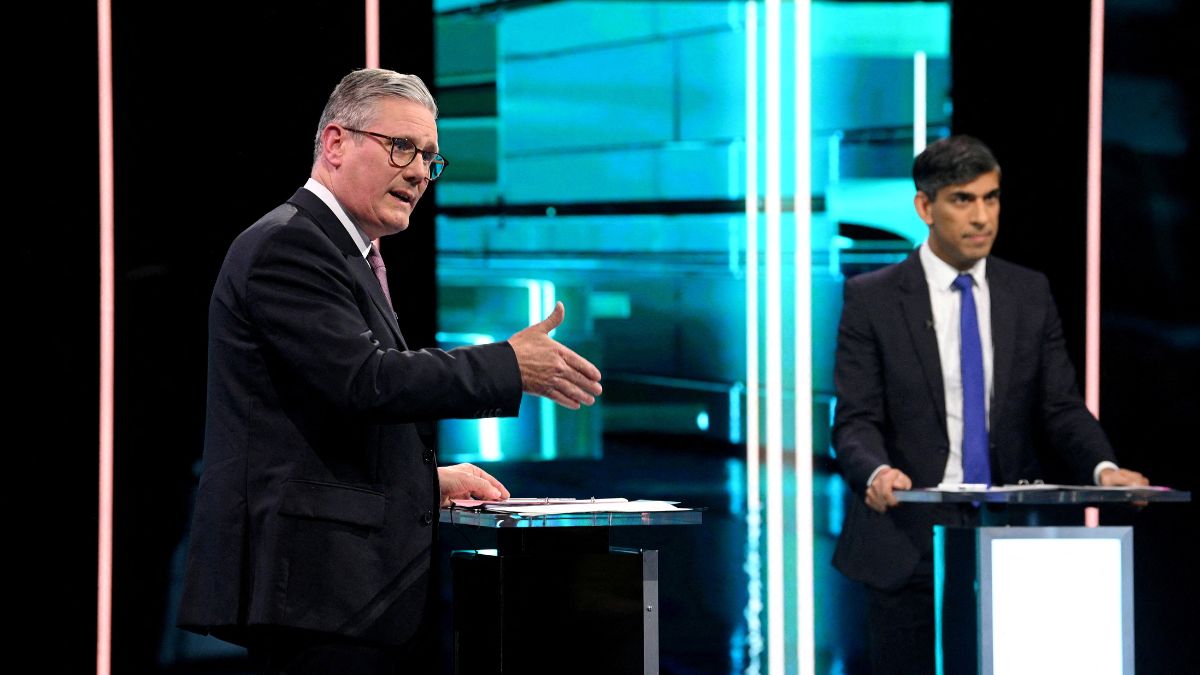As the UK approaches the general election on 4 July, most major political parties have unveiled their manifestos, outlining their plans and promises. We delve into the key proposals of the Labour Party, the Conservative Party, the Liberal Democrats, the Green Party, and Plaid Cymru, comparing their stances on various critical issues.
The Scottish National Party and Reform UK are the only two big parties left to release their manifestos.
About the economy
The fiscal strategies of the parties can be broadly categorised into two camps: the reluctance to raise taxes, as seen with Labour and the Conservatives, and the more flexible approach of the Liberal Democrats and the Greens, reported The Guardian.
Labour Party: Labour proposes £7.4 billion in tax hikes, including levies on private school fees, tightening non-dom taxation, and expanding the windfall tax on oil and gas companies. This funding is earmarked for £4.8 billion in new spending, focusing on hiring more teachers and nurses and investing in green initiatives.
Conservative Party: The Tories aim to cut £17 billion in taxes, primarily through reducing national insurance rates. However, they are less clear on how they will offset these cuts, only suggesting £12 billion in unspecified welfare reductions.
Liberal Democrats: The Lib Dems plan to raise £27 billion through taxes such as capital gains tax and an extended windfall tax on fossil fuel companies. They propose significant investments in the NHS and social care, including enhanced access to mental health services, GPs, and dentists. They also plan an additional £19.7 billion for investment in building 150,000 new social homes annually, likely funded through extra borrowing.
Green Party: The Greens advocate for a wealth tax among other fiscal reforms to support their spending plans. They emphasise significant investments in green technologies and infrastructure.
Plaid Cymru: This party focuses on securing a fairer distribution of central government funds for Wales, aiming to enhance fiscal autonomy.
Health
According to The Guardian, All parties recognise the urgent need to address NHS and dentistry crises, proposing various solutions to reduce waiting lists and improve services.
Labour Party: Labour promises 40,000 new appointments weekly to clear backlogs, improved NHS technology, and a “dentistry rescue plan,” including supervised tooth-brushing for young children.
Conservative Party: The Tories pledge a new dental plan focusing on new GP surgeries and reducing health service managers. They aim to recruit 92,000 more nurses and 28,000 more doctors by 2029.
Liberal Democrats: The Lib Dems offer a time guarantee for GP appointments and free adult social care, leveraging their proposed tax changes to fund these initiatives.
Green Party: The Greens propose an additional £8 billion annually for the NHS and a similar amount for infrastructure improvements.
Plaid Cymru: Plaid Cymru seeks to increase GP numbers by restoring their funding to 8.7 per cent of the devolved health budget.
All about Environment
Environmental policies highlight stark contrasts among the parties, particularly regarding fossil fuel reliance and green investments.
Conservative Party: The Conservatives will continue issuing licenses for North Sea oil and gas extraction, maintaining the windfall tax unless oil prices fall sharply. They promise investments in green technologies like carbon capture and storage and a parliamentary vote on the next stage of their net zero plan.
Labour Party: Labour’s climate plan centers on creating Great British Energy and the National Wealth Fund, aiming to decarbonise the electricity grid by 2030.
Liberal Democrats: The Lib Dems advocate for an emergency program of home insulation and heat pump installation.
Green Party: The Greens propose canceling recently awarded oilfield licenses and state renewable energy expansion.
Plaid Cymru: Plaid Cymru pushes for a significant expansion of renewable energy across Wales.
Education
Education policies focus on teacher recruitment, school funding, and curriculum changes.
Conservative Party: The Tories plan to ban mobile phones during school hours and mandate math study until age 18. They promise to maintain real-term school spending, potentially increasing pressure on other public services.
Labour Party: Labour aims to recruit 6,500 new teachers funded by adding VAT to private school fees, provide free breakfast clubs in every primary school, and introduce 3,000 extra nurseries.
Liberal Democrats: The Lib Dems offer a lifelong skills grant of £5,000 for adults to improve their skills.
Green Party: The Greens plan to abolish Ofsted, end high-stakes formal testing, and scrap university tuition fees.
Plaid Cymru: Plaid Cymru wants to recruit more teachers and provide universal free school meals.
Immigration - a hot topic
Immigration policies reflect a spectrum from strict control to more humanitarian approaches.
Conservative Party: The Conservatives promise immediate deportation flights to Rwanda if they win, with a target to halve net migration and implement a cap.
Labour Party: Labour also aims to cut net migration and will scrap the Rwanda scheme, focusing on a new border security command and signing returns agreements with international partners.
Liberal Democrats: The Lib Dems propose safe and legal routes for asylum seekers and transferring visa responsibilities from the Home Office.
Green Party: The Greens plan to drop restrictions on migrant workers bringing dependants and allow asylum seekers to work.
Plaid Cymru: Plaid Cymru wants more safe routes for asylum seekers.
Housing
Housing policies range from ambitious building targets to addressing homelessness and housing affordability.
Conservative Party: The Tories pledge to build 1.6 million new homes but do not commit to restoring mandatory housing targets for councils.
Labour Party: Labour will restore local housebuilding targets, allow some green belt construction, and reform the planning system to lower compulsory purchase order costs.
Liberal Democrats: The Lib Dems promise 150,000 new social rent homes annually.
Green Party: The Greens propose a mass building program, rent controls, and allowing councils to requisition empty properties.
Plaid Cymru: Plaid Cymru advocates for a “right to adequate housing.”
Crime and policing
Crime and policing policies vary from increased recruitment to reforming drug laws.
Impact Shorts
More ShortsConservative Party: The Tories plan to recruit 8,000 new police officers and expand facial recognition technology.
Labour Party: Labour promises neighborhood policing teams and a crackdown on low-level crimes like fly-tipping.
Liberal Democrats: The Lib Dems focus on rehabilitation and community supervision.
Green Party: The Greens propose a national commission to reform drug laws.
Plaid Cymru: Plaid Cymru seeks the full devolution of policing power to Wales.
In summary, the UK parties present a diverse array of policies and promises in their manifestos, each aiming to address the nation’s pressing issues in different ways. As voters prepare to cast their ballots, these plans will be pivotal in shaping the future direction of the country.
Also Read: Who is Keir Starmer, the man standing between Rishi Sunak and 10 Downing Street?
With inputs from agencies


)


)
)
)
)
)
)
)
)



